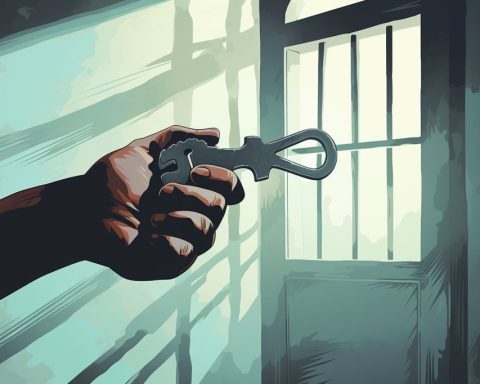Egypt’s Devolution into Authoritarianism: A Decade of Suppression
Ten years ago, then-defense minister Abdel Fattah al-Sisi promised to lead Egypt out of the “terrorist” shadow of former Islamist president Mohamed Morsi. However, over the years, al-Sisi has transformed Egypt into a nation where dissent is silenced, the media is controlled, and the justice system is a maze. This article will explore the current state of repression in Egypt, examining the country’s history of activism, the extent of current oppression, and the consequences of al-Sisi’s regime.
A History of Activism and Repression
While Egypt has never been a liberal democracy, the current level of repression is unparalleled, according to rights activists. Throughout Egypt’s history, activists and lawyers have faced imprisonment for their opinions, but the scope has expanded significantly. Today, ordinary citizens now risk being accused of terrorism for a TikTok sketch or a Facebook post discussing the cost of living.
The Current State of Repression
Egypt, the most populous Arab nation and a key US ally, has been criticized by the United States for torture, “life-threatening prison conditions,” free speech restrictions, and persecution of the LGBTQ community. Since al-Sisi rose to power in 2012, he has tightened his grip on the nation, causing the entire population to live in fear of arrest and detention without due process.
The Consequences of Repression
The suppression of dissent in Egypt is now so complete that no opposition newspapers remain, and demonstrations have ceased entirely. Rights groups report that 562 websites have been blocked, including independent news outlets, non-profits, and rights organizations. Rap and electronic music performers face routine bans, and young female social media influencers have been prosecuted for allegedly “violating family values.”
The Illusion of Reforms
Egypt’s authorities claim to have implemented reforms, such as lifting the long-standing state of emergency and releasing hundreds of political prisoners through a revived presidential pardoning committee. However, rights defenders argue that these actions are merely gestures, as measures previously allowed under states of emergency have been incorporated into laws that now serve as tools of oppression.
The Broken Justice System
Egypt currently ranks 135th out of 140 countries on the Rule of Law Index by the World Justice Project. Its justice system ensnares countless citizens, with some spending years in pre-trial detention without access to a lawyer. Despite being acquitted of terrorism charges, some individuals continue to face the same charges under new case numbers, which restarts their pre-trial detention period.
The Hidden Prison Population
Lawyers now attend their clients’ detention hearings via video call, an arrangement that initially aimed to protect against Covid but has limited their ability to communicate with detainees. As a result, the true number of Egyptians in prison remains unknown, and authorities refuse to release figures. Rights monitors claim that at least 16 inmates have died in state custody so far this year, with at least five deaths occurring in new rehabilitation centers.
The state of Egypt today reflects a dramatic transformation from a decade ago, with the entire country living in fear and an unprecedented level of repression dominating every aspect of life. The government’s attempts at reform have been superficial, and the justice system remains broken. As Egypt continues to suppress dissent and violate human rights, the international community must maintain pressure and demand accountability.












